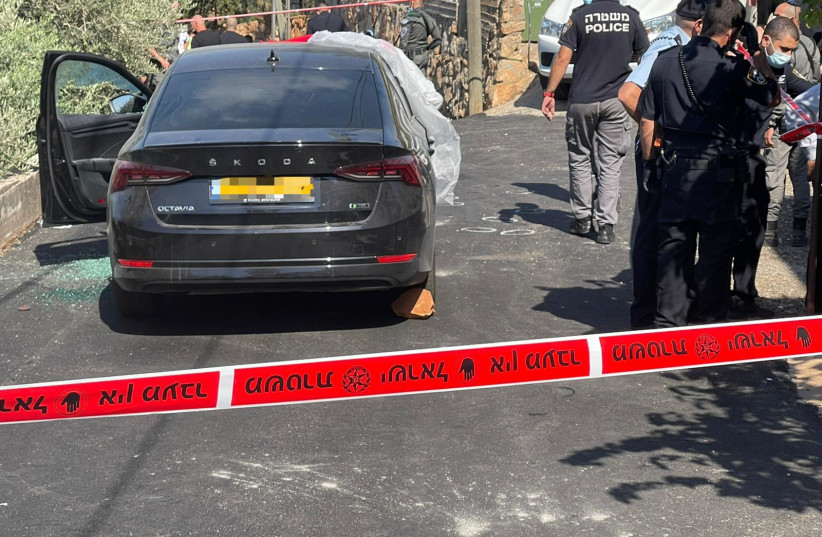I recently had the opportunity to attend a conference organized by MK Yoav Gallant and my organization, Im Tirtzu, that focused on an assessment of Israel’s current security situation. The security under consideration was not the threat from Iran but the threat from within.
The news was not good. There was unanimous concern about the deteriorating internal security picture, given the widespread riots in mixed cities throughout Israel this past May, and continued aggressive and criminal behavior by Bedouin in the Negev and Arabs in the Galilee.
The conference was not a finger-pointing exercise; rather, it was a candid admission of an increasingly dire state of affairs and a clarion call for addressing and redressing the situation. There was a strong sense that we had lost our willingness to exercise our sovereignty, to exert control and to make sure that all who live in Israel understand the rules of the game.
This was not a partisan exercise of blaming the current government, even though the two leading speakers, Gallant and MK Avi Dichter, are both senior Likud members and highly experienced government officials. It has been a long process in development, reflecting a time-honored Israeli propensity to kick problems down the road in the name of maintaining the appearance of calm.
What is different now is that the calm has proven to be deceptive, and the price for it was an accrued determination to disrupt, to usurp and to assert power by those seeking to rend the fabric of our society as a generous and humane Jewish and democratic state. So, the question has been called, the issue has been raised, and the problem has been clearly identified.

The real issue going forward is what kind of resolve and determination will there be to address and to tackle the matter at hand. While there were meritorious suggestions about increased manpower, and the use not just of the police but also the IDF and the Shin Bet (Israel Security Agency), the more important consideration will be the willingness to follow through.
Here, I suspect, is where the real challenge lies, because the challenge is internal. The challenge is for us to take steps that we know will be looked at by the usual detractors abroad as (and you can supply your own indictments) discriminatory, one-sided, heavy-handed and consistent with apartheid, colonialism, etc.
The problem is that we allow these narratives and these indictments to inform and to sway us. We forget that no other sovereign country feels the need to ask permission or gain the approval of outside forces for the exercise of the rule of law within its own country.
We implicitly doubt ourselves, and by extension, we have internalized the criticism, condemnation and negative judgments coming from Western powers. Above all, we have implicitly accepted that somehow Israel is subject to a unique double standard that other countries would scoff at and pay no attention to.
I am no social psychologist, but to me, this appears to be the national manifestation of Galut (Exile) Syndrome, of the unending desire to be accepted, to be approved. We somehow need to have the approval, if not the imprimatur, of those who will never ever provide it.
Galut Syndrome is the term for a behavior that implicitly recognizes one’s own powerlessness and lack of free determination. It is manifested in the acceptance and the embrace of this reality, which in turn informs every decision one makes. While this was traditionally a manifestation of individuals, it has had a remarkably durable history in the halls of power and in the institutions of the State of Israel itself.
Why are we letting the European Union provide millions of euros for illegal construction in Judea and Samaria? Why are we caving in the face of knee-jerk disapproval for any steps designed to reinforce rather than to compromise our control and sovereignty, both within 1949 Israel and without?
Ironically, it is Israel’s Western immigrants, those who have the least direct influence and impact within our state by virtue of their relatively recent arrival, who have the clearest vision and perspective about this.
Why? Because they know the internal weakness of the places that they have left; they understand the “paper tiger” aspects of much of Western political power, the knee-jerk willingness to sanctimoniously condemn, but the ineffectual inability to actually do anything about it.
Here is a simple suggestion, an experiment as it were. What if we were to exercise the judgments and take the actions that we believe we need to undertake without any reference to international reactions, positive or negative?
What if these were nonfactors where the only considerations would be what is likely to be most effective, durable, impactful and fair? And then, when the inevitable condemnation arrived, what if we just deflect it; better yet, we ignore it? So much of the condemnation we get is obligatory; we could supply it before it even reaches us.
So why not just say, “Thank you for your concerns. We will take it under advisement,” and then just keep doing what we think we need to do? What do we think will actually happen? If your answer is, little or nothing, I think you have hit the nail on the head. Ultimately, there is not the willingness to confront us when we act with conviction and with determination.
Our problems are manifest but addressable. We can only help ourselves by turning off the spigot that internalizes criticism, which never has our good at heart. We can only help ourselves by being true to our vision of what our humane and just society requires.
The writer is chairman of the board of Im Tirtzu, a grassroots Zionist watchdog organization, and director of the Israel Independence Fund.
